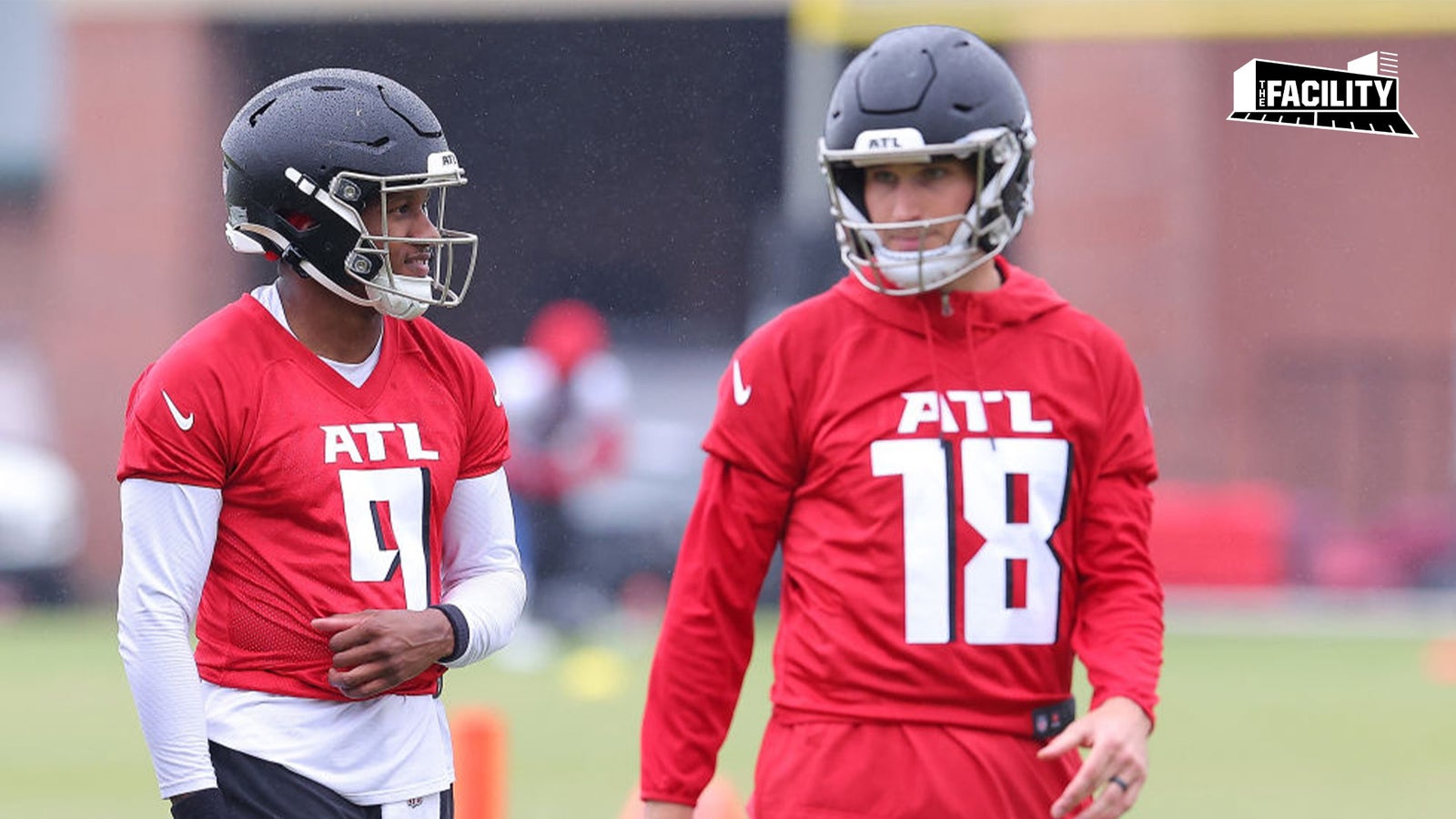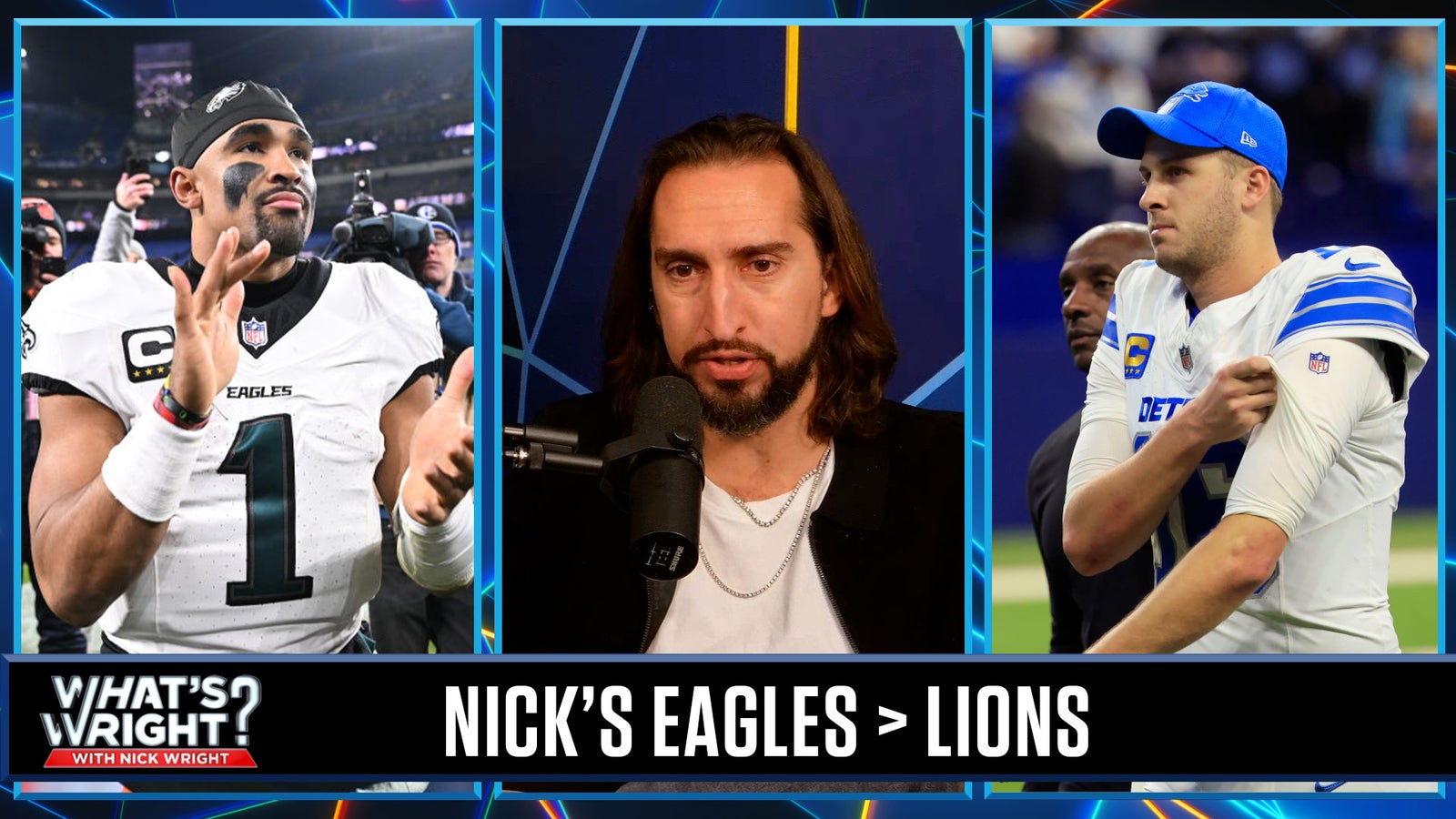
Kirk Cousins to Michael Penix Jr.: Why Falcons made move, what fans should expect, more
Three NFL teams — the Saints, Titans and Browns — benched their starting quarterbacks mid-game on Sunday, but the biggest switch of the week didn't arrive until Tuesday, when the Atlanta Falcons announced they were benching veteran Kirk Cousins and turning to rookie Michael Penix Jr. moving forward.
The Falcons (7-7) are only one game behind the Bucs for the NFC South lead, and remain alive for a wild card as well, so Penix — with five pass attempts all season, and none in the last month — steps in with much on the line and a chance to turn Atlanta's season around after a four-game losing streak that ended Sunday.
[Related: Falcons bench Kirk Cousins in favor of Michael Penix Jr.]
So why now? What does this mean for Cousins, who signed a four-year, $180 million contract in March? What are Atlanta's options moving forward as they try to shed a contract that will take up a large chunk of their 2025 salary cap even if he plays for another team?
Let's outline some potential answers to these questions.
The timing
The public call for change at quarterback had grown loud during Atlanta's four-game losing streak, as Cousins played a major role in the slide. He had zero touchdown passes and eight interceptions in those games, the worst zero-TD, four-game stretch for any NFL quarterback in 19 years. Falcons coach Raheem Morris had adamantly supported Cousins, insisting last week he was still the team's starter. Atlanta won Sunday in Las Vegas, but did so largely on their defense, winning 15-9 in a game where Cousins threw for a season-low 112 yards, with one touchdown and one interception.
Switching to Penix last week would have meant his first start came on the road, and now, he'll get to do so at home with the crowd behind him, against a Giants team tied with the Raiders for the league's worst record at 2-12. New York's defense has a league-low two interceptions, giving Penix a low-risk atmosphere for his first meaningful NFL snaps.
What's at stake?
Six weeks ago, the Falcons essentially had a three-game lead on the Bucs, on course to end the franchise's six-year playoff drought and host a playoff game in Morris' first season as Atlanta's head coach. The four-game collapse, combined with a four-game win streak from the Bucs, has Tampa Bay now atop the division and controlling its destiny for a fourth straight division title.
Atlanta is still very much alive — the New York Times' playoff simulator gives them just a 24% chance to make the playoffs, but if they win their three remaining games and the Bucs lose just one of their last three, the Falcons would win the NFC South. If the Bucs win out, the Falcons could still get the wild card by winning out and having the Commanders just lose one other game, against the Eagles or Cowboys.
The Falcons' Week 17 game at Washington had already been flexed to a Sunday night window, and now that game carries the added subplot of having two first-round quarterback draft picks — Penix and the Commanders' Jayden Daniels — squaring off with a playoff berth potentially hanging in the balance. If the Falcons can win their next two games, on that alone the New York Times has their playoff chances increasing from 24% to 72%; if Washington loses as expected to the Eagles this weekend, the same two wins for Atlanta would have them at 81% entering a comparably easy regular-season finale at home against the Panthers.
What's next for Cousins?
Atlanta made the largest financial commitment of this year's free-agent cycle in signing Cousins, giving him $90 million guaranteed even though he was 35 and coming off a torn Achilles tendon. If Cousins is still on the roster in mid-March, there's another $10 million guaranteed, so the Falcons have a timetable to try to find a way to trade him to another team or make the difficult decision to cut him outright before they commit to any more money.
Cousins made $62.5 million this season for 14 games — a year ago, with Desmond Ridder and Taylor Heinicke at quarterback, the Falcons had 17 touchdowns and 17 interceptions; one huge contract later, Cousins gave them 18 touchdowns and 16 interceptions. Their decision to sign him and use the No. 8 overall pick on Penix was universally questioned — the team framed it as adding their present and future at the game's most important position, but it undercut Cousins before he'd taken his first snap.
A team acquiring Cousins as it stands would be committed to paying him $37.5 million next season, with no guaranteed money after the 2025 season. This isn't a strong draft for quarterbacks, and the true free-agent options are limited, with Minnesota's Sam Darnold and Pittsburgh's Russell Wilson as the only true starters available, if they are in fact available.
Cousins being due $37.5 million is still a huge amount for a 36-year-old who leads the NFL interceptions, so if Atlanta wants to find a trade partner, the Falcons might have to eat some of his remaining salary. Otherwise, if they sit him on their bench or cut him outright, they would be forced to pay all of it. Convert another $10 million into a bonus, and you're paying him $72.5 million for one year, instead of cutting him and paying him $90 million for the same single season. The matter is complicated by Cousins having a full no-trade clause, so he'd have to sign off on any potential deal.
Even if they're able to move on from him, Cousins will have a massive impact on their 2025 salary cap in "dead money," or cap space devoted to a player no longer with the team. If they trade him before free agency in March, they'll still have $37.5 million in dead money — more than he counted this past season — in 2025, limiting their ability to add free agents and keep their own. If they have to cut him, it's a much larger cap hit, with $65 million in dead money, potentially spread out over 2025 and 2026.
What will Penix bring to Atlanta's offense?
One major change from the start is that Penix is a rare left-handed quarterback — Miami's Tua Tagovailoa is the only starting lefty in the league right now. That could change some protections on the offensive line, as his blind side is now on the opposite side, and receivers will get adjusted to the ball coming out from the other hand on throws.
Cousins' mobility was severely limited by his Achilles injury, so there wasn't much of a threat of him scrambling — he had 23 carries for a net zero yards this season. Cousins was sacked 29 times — 12th-lowest in the league — but his ability to elude defenders was not a strength.
Penix, who had multiple major knee surgeries in college, has never been an active scrambler — he rushed for 265 yards total in six years of college — but he was timed with a 4.51 40-yard dash at his pro day, so he'll certainly add a dual-threat aspect that was sorely missing with Cousins.
Atlanta's offense is loaded with talent, in running back Bijan Robinson, receivers Drake London, Darnell Mooney and Ray-Ray McCloud and tight end Kyle Pitts, all with at least 400 yards receiving this season. Penix was a prolific passer at Washington the last two years, throwing for 4,903 yards and 36 touchdowns last year to set himself up as a first-round pick.
He gets a three-game preview of next season, a chance to show the Falcons what he's capable of doing. If he loses and they miss the playoffs, that disappointment was already well in place before he took over; if he wins and they somehow make the playoffs, he'll be the talk of the NFL during a season in which rookies have won much more than normal, from Daniels to Denver's Bo Nix, both in position to make the playoffs as first-year starters.
Greg Auman is an NFL Reporter for FOX Sports. He previously spent a decade covering the Buccaneers for the Tampa Bay Times and The Athletic. You can follow him on Twitter at @gregauman.
[Want great stories delivered right to your inbox? Create or log in to your FOX Sports account, follow leagues, teams and players to receive a personalized newsletter daily.]












